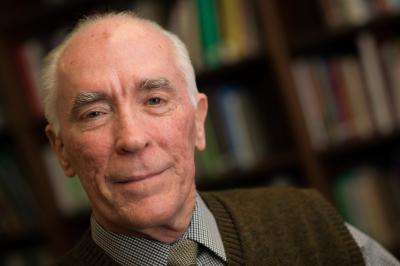Safeguards needed for tissue donors

vast collections of human tissue samples that scientists hope will lead to new treatments for diseases – have a right to basic information about how their donations may be used, a Michigan State University ethicist argues in a new paper.
The idea behind biobanks is that a repository with hundreds of thousands of samples, each linked to medical records and other health information, can yield discoveries smaller data sets can't match. Once samples are collected, researchers in many fields can use the data repeatedly.
"More and larger biobanks are in many ways the future of health research," said Tom Tomlinson, director of MSU's Center for Ethics and Humanities in the Life Sciences. "Their rise as a research tool means that sooner or later – probably sooner – all of us will be participating in research that we know nothing whatsoever about."
Ethicists have typically viewed biobank donations through the lens of risk: Once someone has given a tissue sample and all identifying information is removed, later research risks no harm to them. Since they no longer need protection, donors usually sign blanket consent forms and receive no updates about how the tissue is used.
But people make donations in the hope of doing good, giving them an ongoing moral stake in what happens to their tissue samples, Tomlinson writes in the Hastings Center Report, a leading bioethics journal.
"Donors should have the information they need to decide if there are moral risks involved that might not be worth taking," he said.
For instance, surveys have found that some people may not donate to publicly funded biobanks if the research would lead to private commercial gain. Others may not want to be involved in research on controversial issues like cloning, or studies that reinforce negative racial stereotypes.
"It's hard to tell a person exactly how their donation will be used," Tomlinson said, "but what you can tell them is the range of uses to which it might be put."
Tomlinson offers specific steps biobanks should take to protect donors' rights. Among them:
- Donors should get ongoing summaries of research projects, written in plain language.
- Biobanks should inform donors when their tissue might be used in potentially controversial research.
- Data-management systems should be in place to let donors withdraw their samples at any time if they take issue with the kinds of research the biobank supports.
















